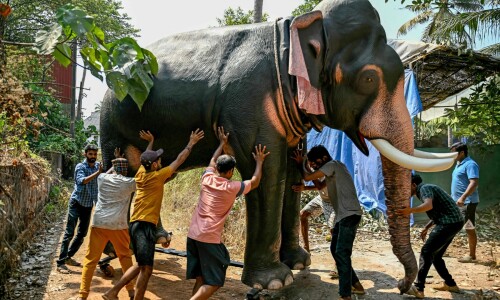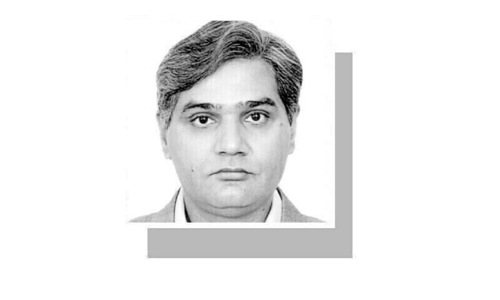LAHORE, Oct 30: Mr Asad Rahman, a veteran of the 1970s’ guerrilla war in Balochistan who had passed away in Islamabad on Monday, was laid to rest here on Tuesday.
He was 62 and working as the executive director of Sangi, a non-government organisation, at the time of his death. His funeral prayers were attended by a large number of relatives, friends, journalists and rights activists.
A most vociferous and frank proponent of the rights of the Baloch and other struggling groups in Pakistan, Mr Rahman had suffered a heart attack a few weeks ago.
He came from a family many of whose members won a name for themselves in their chosen fields. He was the son of Justice S.A. Rahman, a former chief justice of Pakistan who had worked as a member of the Bengal Boundary Commission. His mother was a philanthropist who ran Mayo Hospital’s famous convalescent home, which was established in 1948, along with Begum Shahabuddin. She passed away in 2002.Justice and Mrs S.A. Rahman had four children, three sons and one daughter. Asad Rahman, born Aug 11, 1950, and later earning the title of Chakar Khan for his association with the Baloch rebellion in the 1970s, was the youngest. The eldest, Shahid Rahman, was a lawyer who died in 1994. Naveed Shahzad nee Rahman distinguished herself as a professor of English language and literature. Rashid Rahman is a prominent journalist, these days working as the editor of ‘The Daily Times’.
Asad Rahman’s wife Tanvir Rahman is an artist and film producer and their only son, Mahmood Rahman, has been active on Lahore’s musical scene as a member of various bands.
Asad Rahman was born in Murree and studied at the St Anthony’s High School and the Government College in Lahore. In 1969, he departed to London to study architecture. However, he left his course unfinished and set out for Balochistan in 1971.In an interview published some time ago, he said he was disturbed by the treatment of the Bengalis in East Pakistan in 1970. He helped elder brother Rashid Rahman to take out a magazine ‘Zindabad Pakistan’ to express their views about the happenings in East Pakistan. He went to Balochistan with the same desire to fight injustice, he said in the interview.
Before taking part in the resistance movement in Balochistan which started in the wake of the military operation of 1973, Mr Asad Rahman worked a lot for the welfare and uplift of its people, recalled Mr Rashid Rahman in a telephonic conversation with Dawn on Tuesday. This work included arranging medical help to the people in an area lacking in basic health facilities.
In 1979, Mr Asad Rahman crossed over to Afghanistan from where, in 1980, he proceeded to London. He returned to Pakistan the same year. In the late 1980s, he worked as a director with the Human Rights Commission of Pakistan and in a brush with journalism, was the assistant editor at ‘The News’ when the paper was launched in February, 1991. After doing a stint with the Aurat Foundation, he joined Sangi, an NGO founded by Umar Asghar Khan. He was recently appointed Sangi’s executive director.
In early September, his name was flashed in the news when the personnel of Punjab police mistreated him along with his son near their house in Lahore. The incident was widely condemned by the members of the civil society and some of his friends have talked about the ill effects it may have had on the health of Mr Asad Rahman – who is remembered as a fighter, an idealist and, to many, ultimately as a romantic with an uncomplicated and tough persona.
“The pain and grief of his passing aside, for what he did in Balochistan and afterwards, his has been a life to be celebrated. He lived a unique life,” Mr Rashid Rahman told Dawn, paying a tribute to his brother and old comrade.
Qul will be held at 5pm, on Wednesday (today), at Mr Asad Rahman’s residence: House No 50, Street II, Block V, DHA Phase II (near LUMS).











































